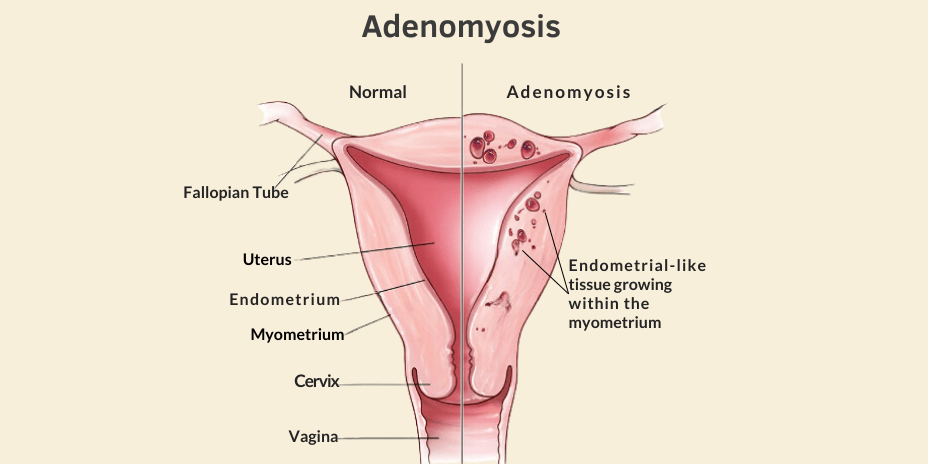
ADENOMYOSIS
Adenomyosis is a common disorder in which the tissue that normally lines the womb grows inside the muscular walls of the womb. The resultant extra tissue leads to a painful menstrual cycle and pelvic pain. This disease is also known as uterine endometriosis.
Adenomyosis is benign in nature, i.e. it is not cancerous. Adenomyosis results in swelling up of the uterus, sometimes to even two or three times its original size. It generally affects women over the age of 35. Adenomyosis is more common in women with high levels of estrogen. This condition disappears after menopause (a year after a woman’s final period), this is because estrogen levels drop after menopause.
CAUSES
The exact cause of Adenomyosis is not known, but research points out to the following factors:
- Invasive growth of tissue : According to some experts this condition is a result of direct invasion of endometrial cells into the muscle forming the uterine walls from the lining of the uterus. Incisions made near the uterus during C-section may lead to direct invasion of the endometrial cells into the wall of the womb (uterus).
- Uterine inflammation due to childbirth : Other experts suggest a link between childbirth & adenomyosis i.e. inflammation of the uterus during the first menstrual period after child birth (postpartum periods) results in breaking of the normal boundary of the uterine wall which causes adenomyosis.
- Stem cells : According to a recent theory, bone marrow stem cells invade the uterine musculature leading to adenomyosis.
RISK FACTORS
The factors below enhance the risk of adenomyosis:
- Uterine surgery : Prior surgeries involving the uterine area for example fibroid removal or C-section can lead to adenomyosis.
- Childbirth : As discussed above in the causes section, uterine inflammation due to child birth may result in adenomyosis.
- Middle age : Women in their 30s are more likely to suffer from adenomyosis.
SYMPTOMS
It is possible that one may not experience any symptoms at all, while on the other hand some women may experience mild to severe symptoms. Most of the symptoms are related to the menstrual cycle.
Symptoms during menstrual cycle:
- Severe cramps
